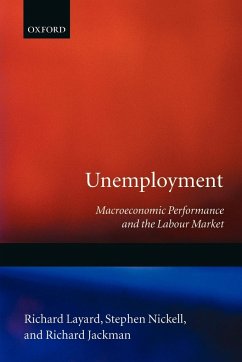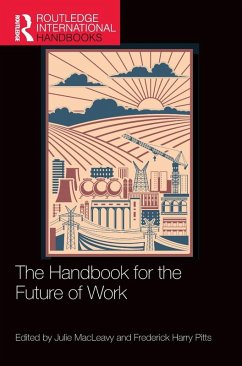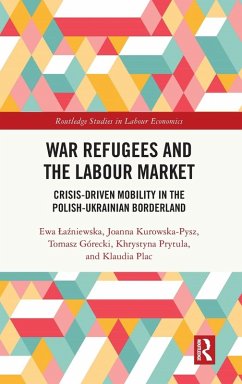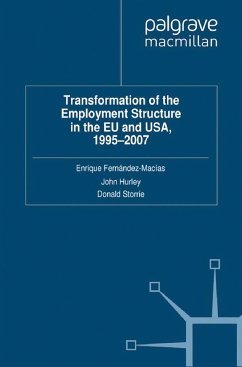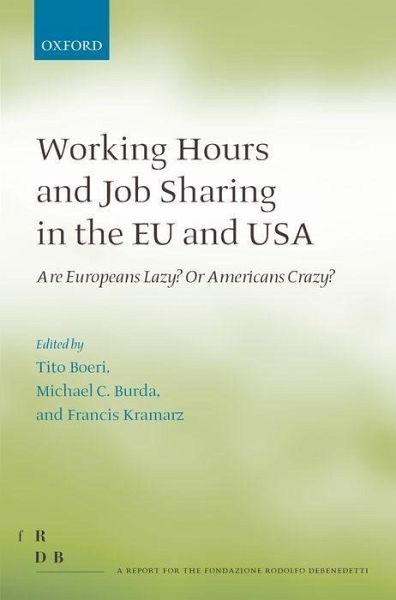
Working Hours and Job Sharing in the EU and USA
Are Europeans Lazy? Or Americans Crazy?
Herausgeber: Boeri, Tito; Kramarz, Francis; Burda, Michael C.
Versandkostenfrei!
Versandfertig in 1-2 Wochen
181,99 €
inkl. MwSt.

PAYBACK Punkte
91 °P sammeln!
In the last 50 years the gap in labour productivity between Europe and the US has narrowed considerably with estimates in 2005 suggesting a EU-US labour productivity gap of about 5 per cent. Yet, average per capita income in the EU is still about 30% lower than in the US. This persistent gap in income per capita can be almost entirely explained by Europeans working less than Americans. Why do Europeans work so little compared to Americans? What do they do with their spare time outside work? Can they be induced to work more without reducing labour productivity? If so, how? And what is the effec...
In the last 50 years the gap in labour productivity between Europe and the US has narrowed considerably with estimates in 2005 suggesting a EU-US labour productivity gap of about 5 per cent. Yet, average per capita income in the EU is still about 30% lower than in the US. This persistent gap in income per capita can be almost entirely explained by Europeans working less than Americans. Why do Europeans work so little compared to Americans? What do they do with their spare time outside work? Can they be induced to work more without reducing labour productivity? If so, how? And what is the effect on well-being if policies are created to reward paid work as opposed to other potentially socially valuable activities, like childbearing? More broadly, should the state interfere at all when it comes to bargaining over working hours? This volume explores these questions and many more in an attempt to understand the changing nature of the hours worked in the USA and EU, as well as the effects of policies that impose working hour reductions.



